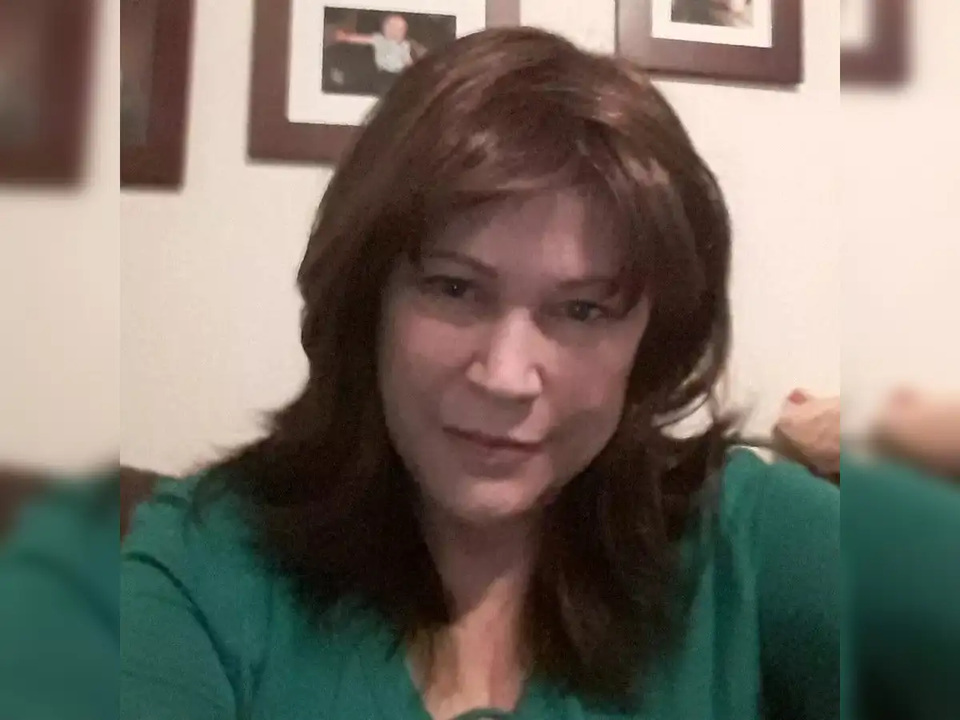In the whirlwind of media coverage surrounding Tyler Robinson, the 22-year-old accused of assassinating conservative activist Charlie Kirk, one voice has emerged with a mix of family loyalty and bewildered disbelief: that of his grandmother, Debbie Robinson. At 69 years old, Debbie has found herself thrust into a national spotlight she never anticipated, fielding questions from reporters and trying to reconcile the grandson she thought she knew with the one now at the center of a political firestorm.
Her comments paint a picture of a family caught between public perception and private turmoil, of a woman grappling with the unthinkable while standing by her kin. As the story unfolded in September 2025, Debbie became an unexpected character in this tragedy, offering glimpses into Tyler Robinson’s upbringing and the values that defined their household.
A Grandmother’s Defense and Family Roots
Debbie Robinson’s reaction to her grandson’s arrest was one of sheer incredulity. In interviews with outlets like the Daily Mail, she described Tyler Robinson as the “shyest person” she knew—a “good kid” who had never been in trouble and was considerate and “squeaky clean” throughout his life. She vehemently insisted there was “no way” he could have committed such a violent act, going so far as to say she would “cross my heart and promise” that he was incapable of it. This grandmother’s perspective is one of unwavering, almost defiant, support, highlighting the deep bond she feels with her grandson and her struggle to reconcile the allegations with the boy she watched grow up.
Debbie also shed light on the family’s political identity, a detail that became instantly significant given the nature of the crime. She stated that the Robinsons are a family of proud Trump supporters and registered Republicans. “My son, his dad, is a Republican for Trump,” she told the Daily Mail. “Most of my family members are Republicans. I don’t know any single one who’s a Democrat.” This assertion adds a layer of complexity to the ongoing investigation into Tyler’s motives, as it seemingly contradicts early assumptions that the alleged shooter must have come from a left-wing background. Debbie claimed she was entirely unaware of any political interests Tyler might have had, noting he never discussed politics with her.

Perhaps most surprisingly, Debbie claimed ignorance about any affinity Tyler might have had for firearms. “I don’t think he ever shot a gun, to tell you the truth,” she said, adding, “He doesn’t hunt, he’s never liked anything like that. I know he doesn’t own any guns.” This statement stands in stark contrast to social media posts from the family that have since surfaced, showing Tyler posing with weapons at gun ranges, suggesting a possible disconnect between the grandson’s private life and his grandma’s perception of him.
You Might Like: Is Erika Frantzve Kirk Pregnant With Third Child?
Navigating Shock and the Search for Answers
For Debbie Robinson, the aftermath of the arrest has been a time of confusion and limited contact. She revealed that she had been unable to reach her son, Matt Robinson, Tyler Robinson’s father, after the news of the arrest became public. This detail underlines the family’s sudden isolation and the intense pressure they are under. It was Matt, according to law enforcement, who recognized his son in the widely circulated surveillance images, confronted him, and ultimately persuaded him to surrender with the help of a youth pastor connected to the sheriff’s office. Debbie’s inability to connect with her own son in this crisis highlights the profound disruption the event has caused within the family unit.
Debbie’s personal background, gleaned from her Facebook profile, indicates she attended Dixie State University and Panguitch High School. She is a grandmother who likely expected her golden years to be filled with quiet family moments, not international media requests. Her statements reflect a person trying to protect the memory of the grandson she cherishes while the world scrutinizes every aspect of his life. She stands by her description of him as a “wonderful child,” a testament to a grandma’s love that remains steadfast even in the face of horrific allegations.
Debbie Robinson’s story is more than just a sidebar to a major news event; it is a human narrative about family, belief, and the shocking realization that someone you love can be accused of the unimaginable. Her comments provide a poignant, personal counterpoint to the official narrative developing in the news, reminding us that behind every national headline are real people whose lives are forever changed. As the investigation continues to seek a motive, Debbie’s voice represents the profound confusion and heartbreak that such a tragedy inflicts on a family, leaving a grandmother to question everything she thought she knew.



